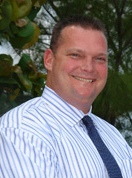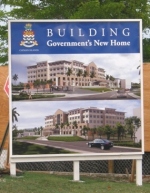Archive for February 12th, 2010

Iceland wants to be free speech haven
 (The Guardian): Iceland is aiming to become a global haven for investigative journalism, with the country’s parliament expected to vote through legislation protecting sources, guaranteeing freedom of speech and ending libel tourism. Supporters liken the initiative to the offshore financial havens that corporations use to avoid government tax regimes – only for free speech. The Icelandic Modern Media Initiative is due to go before the country’s parliament on Tuesday, according to Jonathan Stray – a blogger for Harvard University’s Nieman Journalism Lab. And the people behind Wikileaks have been involved in drafting the law.
(The Guardian): Iceland is aiming to become a global haven for investigative journalism, with the country’s parliament expected to vote through legislation protecting sources, guaranteeing freedom of speech and ending libel tourism. Supporters liken the initiative to the offshore financial havens that corporations use to avoid government tax regimes – only for free speech. The Icelandic Modern Media Initiative is due to go before the country’s parliament on Tuesday, according to Jonathan Stray – a blogger for Harvard University’s Nieman Journalism Lab. And the people behind Wikileaks have been involved in drafting the law.
Tremor shakes up Cayman
(CNS): Hazard Management have now confirmed details of this morning’s earth quake, the second in the Cayman region in a month. Officials said Grand Cayman experienced a minor earth tremor of 3.7 at around 2.45 am on Friday 12 February. The seismic event occurred some 30 miles south of George Town at a depth of 10KMs. Despite reports from residents that they had felt a tremor in the early hours of the morning, officials said they struggled to source exact details of the latest regional quake. Although HMCI took proactive steps to follow up on the first inquiry it received, it said that it took some time to confirm the earthquake.
HMCI also stated that at no time did the tremor pose a threat to the residents of the Cayman Islands.
The agency said it received one inquiry from a member of the public who believed they felt the event and HCMI subsequently investigated that report. “Accurate information regarding the tremor was initially limited; however HMCI was able to get an early confirmation from the University of the West Indies, Jamaica Earthquake Unit that there was indeed a tremor and they provided a preliminary report,” the government agency said. The information was not posted on the USGS site until Friday evening.
The initial details received by HMCI and those which CNS was also able to track were that the quake was magnitude 4.7 at a depth of 15 kilometres along the CaymanRidge area at 19.253 N and 81.263W. USGS subsequently posted the event just after 4.09 pm with a revised magnitude of 3.7 and a depth of 10 km 30 miles south of George Town, Cayman Islands.
HMCI said that Cayman is located in an active seismic area and encouraged the public to continue their earthquake preparedness activities throughout the year.
This morning’s earth tremor follows a significant 5.9 magnitude earthquake which hit Grand Cayman on Tuesday, 19 January, 32 miles south of Bodden Town a little after 9:20am at a depth of just over 6 miles.

Open Arms Family Fun Day
 (CNS): Rotaract Blue Cayman Islands will be hosting the 2nd Annual Open Arms Family Fun day event on Saturday, 20 February, at the Airport Park. The Open Arms programme aims to create awareness and understanding of different disabilities and to integrate individuals with disabilities into the community. The Family Fun Day creates the opportunity for interaction among children and families of many different backgrounds. Gates open at 11am and the fun will continue until 3pm. The Family Fun Day will feature a bounce-a-castle, lots of games, arts and crafts and food. There is no admission charge.
(CNS): Rotaract Blue Cayman Islands will be hosting the 2nd Annual Open Arms Family Fun day event on Saturday, 20 February, at the Airport Park. The Open Arms programme aims to create awareness and understanding of different disabilities and to integrate individuals with disabilities into the community. The Family Fun Day creates the opportunity for interaction among children and families of many different backgrounds. Gates open at 11am and the fun will continue until 3pm. The Family Fun Day will feature a bounce-a-castle, lots of games, arts and crafts and food. There is no admission charge.
Rotaract Blue encourages the community to come out and support this important event. It will be a day filled with fun for the entire family. All the proceeds go to the Rotaract Blue Open Arms Programme.
Rotaract is a programme which is recognized on an international level and is designed for young professionals who want to make a difference. Rotaract Blue is one of the newest Rotaract initiatives in the Caribbean. We are proudly sponsored by Rotary Club of Grand Cayman Central and under their guidance we have become the second established Rotaract Club in the Cayman Islands.

New uniforms for secondary students
 (CNS): All secondary students in Grand Cayman government schools will be changing to new uniforms for September 2010, the Education Ministry has said, though colours and style has not yet been decided. Years 7 through 11 students at the John Gray and Clifton Hunter Campuses will wear similar uniforms, with distinctive colours for each of the two campuses. Year 12 students will also have a new uniform. Boys will continue to wear standard pants and shirts, and girls will now have the choice of pants or skirts to complement the uniform blouse. Black shoes will continue to be required for all students.
(CNS): All secondary students in Grand Cayman government schools will be changing to new uniforms for September 2010, the Education Ministry has said, though colours and style has not yet been decided. Years 7 through 11 students at the John Gray and Clifton Hunter Campuses will wear similar uniforms, with distinctive colours for each of the two campuses. Year 12 students will also have a new uniform. Boys will continue to wear standard pants and shirts, and girls will now have the choice of pants or skirts to complement the uniform blouse. Black shoes will continue to be required for all students.
Ministry Chief Officer Mary Rodrigues said that students and parents will be consulted before final decisions are made about the specific colour and style choices for the uniforms. A Uniforms Committee has been meeting regularly and is preparing for formal consultation.
Chief Education Officer Shirley Wahler noted that there is a commitment being undertaken to ensure affordability and value for money.
“Uniforms is one of the topics that has been covered in recent parents meetings at John Gray and George Hicks, and parents have been very enthusiastic in their support for any efforts to ensure that uniforms are affordable.”

US agency to review threats for 82 coral species
 (Center for Biological Diversity): US officials said Wednesday they have begun a review to determine if dozens of coral species off Florida, Hawaii and island territories of the Caribbean and Pacific should be listed as "threatened" or "endangered." Currently, only reef-building staghorn and elkhorn corals are listed as threatened under the federal Endangered Species Act, the first corals ever to receive such protection based on dramatic declines. In the federal register Wednesday, the National Marine Fisheries Service said an Oct. 20 petition filed by a U.S. conservation group "presents substantial scientific or commercial information" indicating protection may be warranted for 82 additional species.
(Center for Biological Diversity): US officials said Wednesday they have begun a review to determine if dozens of coral species off Florida, Hawaii and island territories of the Caribbean and Pacific should be listed as "threatened" or "endangered." Currently, only reef-building staghorn and elkhorn corals are listed as threatened under the federal Endangered Species Act, the first corals ever to receive such protection based on dramatic declines. In the federal register Wednesday, the National Marine Fisheries Service said an Oct. 20 petition filed by a U.S. conservation group "presents substantial scientific or commercial information" indicating protection may be warranted for 82 additional species.

Bostock calls for agency collaboration to fight crime
 (CNS): President of the Cayman Islands’ Chamber of Commerce has called for greater inter-agency cooperation and communication between the police, immigration and customs to fight the islands’ increasing crime problems. Stuart Bostock said government needs to bring back the special task force and get to grips with the crime problem before the country reaches the stage of bars on shop windows and security guards on every door. He also hit out at Chamber members who have criticized him for speaking out against crime.
(CNS): President of the Cayman Islands’ Chamber of Commerce has called for greater inter-agency cooperation and communication between the police, immigration and customs to fight the islands’ increasing crime problems. Stuart Bostock said government needs to bring back the special task force and get to grips with the crime problem before the country reaches the stage of bars on shop windows and security guards on every door. He also hit out at Chamber members who have criticized him for speaking out against crime.
Speaking at the Chamber’s recent crime prevention session, Bostock addressed comments by a few chamber members who, he said, had criticized him for taking on the issue of crime saying that it is not a matter for the Chamber, it is a matter for the police. “Well, I completely disagree,” the president stated. He said that staff and customers are the lifeline of the economy and they are questioning their safety at work and doing business on the premises of Chamber members.
“Of equal importance to our economy are the owners and shareholders of businesses who should not lose assets and profits to criminal damage, theft, burglary, and robbery. Crime is just one of the issues I will tackle in my year as Chamber President and the reason I personally view it as a priority is simple: without a safe and profitable jurisdiction to do business and raise our families, what are our options?”
He lamented the current situation and asked, “Are we going to accept bars on the windows and locks on the doors so customers have to be buzzed in? Are armed security guards in our banks, stores and offices a suitable future for the Cayman Islands?”
Bostock also noted the key concern of many people in the community. “We need to tackle the gun supply into our country and we need to tackle it hard,” he said, and demanded training for those involved in border patrol.
Bostock also noted the need to invest in advanced detection equipment and training for the border agencies and in advanced investigative equipment and techniques for the RCIPS. He called for tougher penalties for violent crime but alternatives to incarceration for non-violent and first time offenders. “We need trained, equipped and respected street response teams working to target criminal activity and responding to incidents with a professional presence and a strong show of force,” Bostock said, adding that community support officers and education campaigns in schools were equally important.
Police Commissioner David Baines, who is coming under increasing pressure to address the rise in crime, was also present at the session as the key note speaker. Baines voiced his consistent concerns over the community’s reluctance to come forward and give evidence and said he only had a limited number of officers.
Eric Bush, Deputy Chief Officer of Internal & External Affairs, announced that government had given the go ahead to begin a National CCTV project. “The purpose of which is to assist in the reduction, prevention and detection of crime; reduce the fear of crime; promote community safety; encourage the use of public and commercial facilities; provide high quality evidence, to be used by Law Enforcement to prosecute offenders; stimulate continuing economic growth within the community; monitor road traffic circulation and improve road safety; and to protect property,” he said.
With a focus on the need for the implementation of CCTV across the island, local security firms, Island Electronics, National Security, Electra-tech Services, Aviation Communications and The Security Centre, were all present to demonstrate their crime prevention equipment.

Henry is murderer says crown
 (CNS): Despite his claims, Kirkland Henry is guilty of murdering Estella Scott-Roberts, whether or not he was the one who actually committed the physical act, the crown said on Thursday. Making her closing address in the murder trial of Henry and Larry Ricketts, Solicitor General Cheryll Richards QC told the court that when he embarked on this joint criminal enterprise with Ricketts to abduct, rape and rob Estella Scott-Roberts, he was aware that the level of violence was such it could escalate to murder and not only did he not distance himself from that crime, he believed he would benefit from it.
(CNS): Despite his claims, Kirkland Henry is guilty of murdering Estella Scott-Roberts, whether or not he was the one who actually committed the physical act, the crown said on Thursday. Making her closing address in the murder trial of Henry and Larry Ricketts, Solicitor General Cheryll Richards QC told the court that when he embarked on this joint criminal enterprise with Ricketts to abduct, rape and rob Estella Scott-Roberts, he was aware that the level of violence was such it could escalate to murder and not only did he not distance himself from that crime, he believed he would benefit from it.
Following further cross examination on Thursday morning of Ricketts’ evidence in chief, when Richards revealed further inconsistencies and implausibility in his claim that his confession statement was fabricated by the police, Richards began her closing statement for the case against both defendants.
If Chief Justice Anthony Smellie, who is acting as judge and jury, does not believe Ricketts’ claims of fabrication by the police, then his confession stands as an admission to murder. However, Henry has claimed that he was not a party to the killing, while admitting his guilt in the rest of the violent crime.
As a result, Richards focused heavily on the legal argument that Henry was involved in a pre-planned and premeditated joint criminal enterprise, in which violent acts were committed from the very start. She said, not only had the two decided to rob and abduct a single, defenceless woman that night, it was clear it would be a violent offence.
Richards pointed out that Henry did not attempt to stop Ricketts from murdering the victim or help her, and that while he may have declared that he would not kill her, he did little to distance himself from the act, remained at the scene, stole Scott-Roberts belongings and attempted to steal money with her bank card after the murderous event. Richards explained that, had Ricketts’ efforts to cover up the crime worked, Henry would have stood to benefit from her death. Richards described how by the division of the deceased’s property Henry had shared in the rewards of the ultimate violent crime.
She also noted that while Henry had made a clean breast of it when the net closed in on him, he had lied when he was first arrested in connection to Scott-Roberts’ property and had shown little remorse until he confessed some time after his arrest.
Richards noted that when the abduction began in the car park at Deckers on the night of 10 October 2008, Ricketts had, according to Henry’s confession, pulled a knife on the deceased to stop her from struggling and cut her hand, but Henry did not leave the scene and got into the car, even when he was aware of the level of violence that would be involved and that his accomplice had a weapon.
She noted how he had helped to subdue Scott-Roberts as he dragged her from the driver’s seat to the back of her car. The solicitor general described how Henry had admitted to restraining her having his hand over her mouth as Ricketts drove the car to the remote Barkers area.
Once there he helped tie up the victim, drag her to the beach and had committed an act of sexual violence while she was bound and gagged.
His comments to Ricketts about it not being right to kill her and that he would not do the act were not enough, Richards claimed, to signify his withdrawl from the joint criminal enterprise. She said Henry had still got into the car, even if he had walked away for a brief period, and drove with Ricketts to the spot where he eventually set fire to it to destroy the evidence of the crime and had stayed with his accomplice while they escaped from the scene with the stolen items in the early hours of the morning.
Richards reminded that court of the continued and frantic attempt to get money from the ATM before the card’s theft was discovered.
Richards pointed to Henry’s continued and willing participation in the crime throughout that started with violence and ended in the ultimate violent act, in which Henry was equally as guilty as Ricketts. The solicitor general told the court that Henry’s claims that Ricketts was the primary motivator and the killer were self serving to reduce his own culpability. Richards said his confession displays a classic response of blaming bad company, to be “led astray by a friend" for the heinous act he also committed.
She noted that, while on the one hand Henry claims to have pondered what was happening when Ricketts drove the car to Barkers and began to get worried about what was happening, his alleged concern did not prevent him from committing the violent sexual assault. Richards also pointed to the indecent images which Ricketts had on a phone in his possession, apparently from the night in question, as demonstration of his obsession about that violent act and evidence of his motivation in the crime and lack of remorse.
“His actions were inconsistent with what he said,” she explained when she pointed the court to his confession where he claimed to be thinking one thing and doing another. She also noted Henry’s alleged conversation with Ricketts outside the car when his accomplice had first raised the idea that they must kill Soctt-Roberts in order that she would not identify the two of them to the police.
Henry says he and Ricketts were ‘reasoning’ outside the vehicle when he told Ricketts that it was not a good idea and that “we could still go to jail”. Richards said the use of “we” was a “very significant pronoun.” His description of watching Ricketts set the fire is further evidence of his continued culpability in the murder, the solicitor general noted. “It is not an indication of someone distancing himself from what is happening,” Richards told the court, adding there was simply no evidence of withdrawl by him from the act of murder.
“His actions are not consistent with someone who did not want the death of the victim,” Richards said as she directed the court to find him, as well as Ricketts, guilty of the murder of Estella Scott-Roberts.
When it came to the crown’s case against Ricketts, Richards pointed out that he had confessed to killing the victim and that now in the court he had chosen to recant that confession, but the crown submitted that his statement was the evidence of his participation and his story now was simply not true.
The prosecutor said his claims that so much had happened by chance that his story was implausible. She said his motive was simple as it was financial gain, and he had killed Scott-Roberts so that she would not identify them and he too was guilty of murder.
On Friday the court will hear theclosing statements of Ian Bourne QC in the case for Henry and Robert Fortune QC in the case for Ricketts before the judge retires to consider his ruling.

Public asset sale essential
 (CNS): Although no one has yet signed on the dotted line to purchase the government’s new administration building, the premier has said that there have been some expressions of interest and that the Central Tenders Committee will be looking into those offers. McKeeva Bush has confirmed that government must sell public assets before the middle of April to raise the cash needed to be compliant with the legal requirements of the budget. Bush hit back at the opposition this week for its recent criticisms that government should not be divesting assets, saying they had not put forward any viable solutions to the country’s dire financial circumstances.
(CNS): Although no one has yet signed on the dotted line to purchase the government’s new administration building, the premier has said that there have been some expressions of interest and that the Central Tenders Committee will be looking into those offers. McKeeva Bush has confirmed that government must sell public assets before the middle of April to raise the cash needed to be compliant with the legal requirements of the budget. Bush hit back at the opposition this week for its recent criticisms that government should not be divesting assets, saying they had not put forward any viable solutions to the country’s dire financial circumstances.
“I have listened to the PPM’s criticisms on the sale of assets,” Bush said at this week’s post-Cabinet media briefing, adding that all his government was doing is what other countries have done. “The United Kingdom is doing it as well as the United States and other major industrialized nations. My main objective is to put the country in the best direction possible, and not have to lay off droves of civil servants. We support the policy to where possible, allow for the Cayman Islands Government to have some ownership in any asset.”
He said the PPM had only offered the idea of solving public finance problem by balancing the budget over a 4-year period. “The fact is this shows how little they understand, or accept, about the dire and dangerous situation they left the country in,” the premier added.
Blaming them for the problems in the first place, he reminded Leader of the Opposition Kurt Tibbetts about his response when Bush had warned him of the impending financial crisis as he planned the PPM’s capital projects. When Tibbetts had said “not on the kindest of mornings” would he bend to him, the premier had said the PPM’s plans wouldn’t work.
Bush admitted that government revenues were down but said spending had been controlled, although not as much as he would like, but the budget forecast was on track. “However, it is imperative that the revenues from the sale of the GOAP – the Glass House – and the sewerage system are realized prior to the start of the next financial year, and in fact by mid April, in order to ensure that we are in compliance with the 2009/10 budget,” he explained. Bush said the revenues for the sale of the assets had to be in the financials before mid-April, as he intended to bring down the new budget for 2010/11 on the 30th of that month.
He said the PPM idea to take a longer period to balance the budget as opposed to selling assets would have serious ramifications. “It would mean that right now we would have to either lay off droves of civil servants or implement the income or property tax, which the UK was advocating. It would probably even lead to letting the UK take away the financial management responsibility from our elected officials, which would lead to all the above happening. I wasn’t prepared to allow that then and I am not prepared to do that now,” he exclaimed.
The premier said he had been telling the PPM from 2005 that their plan to run away good business was not sustainable. “Mouthing off about foreign investment – and changing immigration to run away everyone, as they did, is not sustainable,” Bush criticised. “The PPM had no plan to get additional investment, and now the country is left with a high debt level due to their exorbitant spending and lack of plans to increase revenues. They can blame the international economic crisis all they want, but the country has not seen any failures of banks or other financial institutions to affect us, none have closed, theonly thing that we have seen is the loss of jobs and revenues, and the loss of good business for people. “
Once again he blamed the former administration for the current economic ills and said they had put the country in an untenable state. “The PPM is to be squarely blamed for this,” Bush accused. “They are criticizing the divestment and the investment programme and other suggestions that the government has made. What I can say to the country is that we are not going to develop or implement any of these programmes without using the proper checks and balances.”
Bush said he would listen to the country, take advice, and consult with proper expertise but he would not listen to the PPM or any newspaper who can’t manage their own business.
“We will thoroughly analyse these initiatives from environmental, economical and social impact perspectives, and if the conclusion is that these initiatives are not good for these islands overall, then they will simply not be done,” he stated.
If any of the initiatives he has spoken about, such as the north sound channel, an oil refinery, a new cargo dock and cargo transhipment, had been put in place in 2003, he said, “the country would have seen by now lower transportation cost, new revenue streams, there would be no unemployment today, and businesses would be more successful.”
He said the people who write the bad news in the paper and the blogs had no commitment to these islands – except to sell their so-called newspapers or have their internet news service survive. “Rather than feed the people a pot of nonsense, these services should strive to educate the people and bring about awareness of the issues, truthfully and unbiased, instead of cursing me,” Bush added.
KPMG warns of growing infrastructure challenge
(CNS): The growing need for more infrastructure development with strained government budgets is a major problem for many island nations, including the Cayman Islands, warns accounting and consultancy firm KPMG. According to a new report, the first of its kind on infrastructure in island economies, the professional number crunchers point out the rising infrastructure challenges faced by local island government when the needs far exceed the total annual revenue budget of all participating countries. The report, entitled “Island economies and their infrastructure: An outlook 2010 and beyond”, provides a comparative analysis of public project development.
According to the KPMG survey, the short to mid-term demand for infrastructure needs far exceeds the total annual revenue budget of all participating countries.
“It is a common factor amongst island communities that tourism and financial services play an integral role in the generation of local revenues. Governments are now looking to diversify their revenue sources. Alternative financing arrangements, such as Public Private Partnerships, need to be seriously considered as options to overcome the present and future challenges,” Beighton added.
The report noted that expectations were running increasingly high among local island populations about what they expected from their governments. “Exceptionally strong forces are widening the gap between islander expectations of ‘infrastructure’ required in islands and the ability of island governments to deliver that infrastructure,” the authors wrote. “This growing shortfall in meeting expectations is expected to result in major political, financing, prioritisation and management challenges for island governments.”
The report also reveals that financing is not the only major challenge faced by the islands; the execution of public sector projects is also an issue. Eighty nine percent of government respondents believed the state of the existing infrastructure in their jurisdiction to be average or below average, KPMG said. Reasons cited included a lack of clear long term strategy and a lack of experienced project management personnel.
Sixty-six percent of officials interviewed believe the execution of infrastructure projects is either average or inefficient in their jurisdictions. Almost 60% of respondents say they never or rarely finish a project on time, and more than 60% either never complete on budget or only sometimes complete on budget.
“Without a clear long term strategy and an efficient procurement process to address overruns, governments will continue to struggle with deficits and ongoing infrastructure development requirements,” KPMG stated.
Simon Townend Regional Head of Corporate Finance at the accountancy firm said the report came to fruition as a result of discussions KPMG’s professionals held with local governments over the past two years. “Similar questions are being asked such as ‘What are other governments doing to address the burden of raising alternative finance and implementing efficiencies for public sector projects’ and ‘How successful have they been in their approach?” he explained.
As a result of the common challenges and trends specifically faced by the islands, the firm commissioned the research to benchmark and outline future models for success.